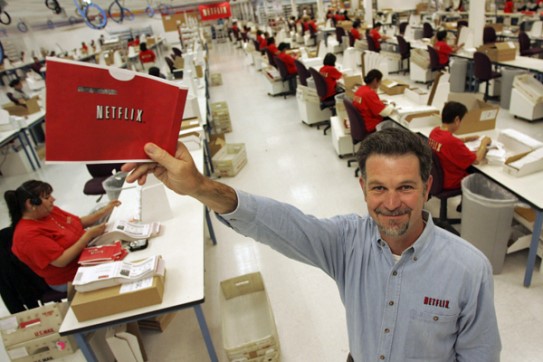"Netflix has no rules as they hire great people"
Netflix is the first name that comes to our mind whenever we think about online streaming, it is a name that resonates with its entire target audience. Are the employees as hooked as it keeps its customers? Here's how the world's most popular streaming service manage its Human capital.
Netflix has two basic principles when it comes to the HR function
1. Brilliant colleagues trump everything else. The best things you can do for an employee is not about installing a foosball table or offering a state-of-the-art, it is the colleagues that you hire.
2. Role Fitment is priority. The other element of Netflix’s approach is a willingness to let go of people whose attitudes and/or skills no longer fit, it does not matter how precious their contributions had once been.
2. Role Fitment is priority. The other element of Netflix’s approach is a willingness to let go of people whose attitudes and/or skills no longer fit, it does not matter how precious their contributions had once been.

These guiding principles of responsibility & authority shape Netflix's HR Policies.
- Netflix’s philosophy is to hire people that will put the company’s interests first. They say that,
If hiring is done in a judicious manner 97% of the employees will always do the correct thing for their company.
Generally, many companies spend a lot of valuable resources documenting and enforcing HR policies to deal with problems the other 3% might cause. Netflix tries hard to not hire those people, and let them go if it turned out that they had made a hiring mistake.
- The job of the HR doesn’t stop at hiring, it’s when it becomes more interesting.
Even if the company has hired the correct staff who want to perform well, it needs to clearly communicate how the company makes revenue and what behaviours will drive its success. Previously Netflix employees used to focus a lot on subscriber growth, without much thought and awareness that the expenses associated often ran ahead of it. Employees need to learn that managing expense is equally important.
- Netflix eliminated formal performance reviews a long time back.
- Managers have the responsibility of creating great teams.
Netflix continually directed managers that building a great team was their most significant task. When Netflix shifted from DVDs to online streaming, the company needed to recruit highly experienced employees with a working knowledge of cloud technology, this meant finding people who had worked for companies that operate on a giant scale, companies like Amazon, eBay, and Google. These are not the easiest places to hire someone away from. Managers have to be leaders to develop a great team and manage it consistently through configuring individual values along with the achievement of common objectives.
- Freedom to explore opprtunities
They firmly believed in market-based pay and would encourage employees to interview with competitors whenever they get the opportunity, in order to develop a sense of the market rate for their competency and talent. Generally, HR people don’t appreciate it when employees talk to competition, but Netflix always told employees to take the call, ask how much, and send them the number, they consider it as valuable information. Netflix doesn’t try to keep anyone hostage if some employee gets a better opportunity elsewhere, he/she is allowed freely to go.
Netflix’s has been very successful with its innovative approach to Human Resources. It is imperative to understand the importance of change and definitely make an attempt to get rid of the obsolete & outdated strategies which fail to provide results. These principles define the cultural fabric at Netflix that keeps employees hooked-on.
Posted in : Success Stories
Views : 28281
Leave a Comment
Hey there !
Author Details
Related Blogs
Popular Tags
Subscribe Now





